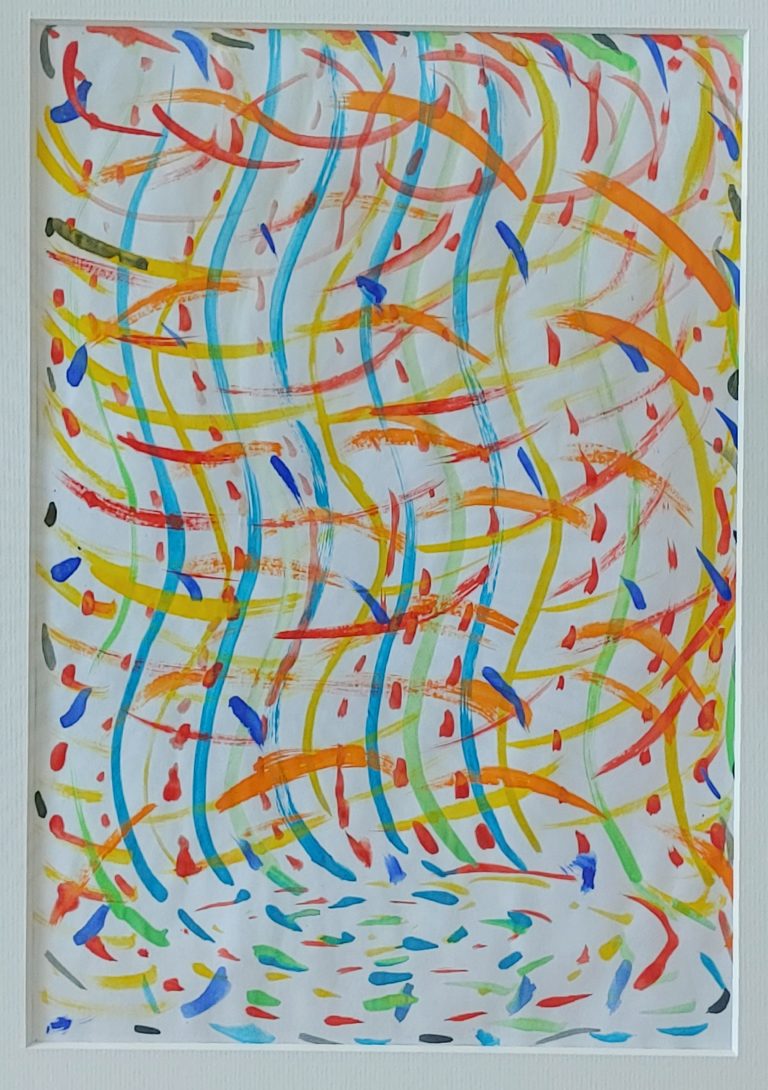Ken Robinson (1950 – 2020) the gifted and now very much missed educational and social reformer from the UK used to like to tell the following story: In the first class of a primary school, the teacher, a confident lady in her mid thirties, gave the children the task of drawing something of their choice. They could use the coloured pencils at their disposal and had fifteen minutes to complete their work.
As the children were busily drawing, heads down in concentration, the teacher ambled through the classroom, going from desk to desk to observe the progress of each child. As she came to the end of the middle row, she was somewhat puzzled by what young Mary had brought to paper, and so asked, straight out: `What’s that you are drawing there Mary?´
Without pausing or even looking up, Mary replied in her usual chirpy voice:
`I’m drawing a picture of God, MIss.´
`But Mary, nobody knows what God looks like´, enjoined the teacher.
`They will in a minute´, replied the child, looking up beaming.
This heart-warming anecdote provides an example of a child in full flow of her creativity, free of any traces of shame. That’s precisely why it warms the heart. We who have known shame are inspired by such example, perhaps by the sheer fact that such children actually exist.
In my own case, I remember being given the task of drawing a house in similar circumstances and of being told, once the result was inspected, that `I couldn’t draw´. I must have taken this to heart because I internalised that belief for the following decades. Having had the green shoots of my creativity scorched in such brutal fashion, I was wary of ever showing anybody anything I drew throughout my school years and beyond. The criticism penetrated deeper than the realm of my accomplishments; it left me convinced that somehow, in the core of my being, I was not right. This is a good description of shame – not being OK in my essence, as if I were defective in some way.
More sinister again was my experience of religion while growing up in Catholic Ireland in the sixties and seventies. The sometimes overt, in-your-face, and other times subliminal messaging was that we were not OK in our being, and that considerable work, penance and pain lay ahead, including at least a stint in purgatory, if we were ever to escape the eternal flames of hell. All of this was codified in a simplistic interpretation of `original sin´, the contention being that we were all starting off with our accounts in the red and would be lucky to ever make it to break-even as we trundled through this vale of tears called `life´.
As I was to discover, guilt and shame were deeply embedded in our culture. Whereas guilt pertains to our actions, shame is directly related to our being. While I can atone for my actions, where appropriate, how do I atone for my existence? It is an impossible challenge. Impossible, of course, because shame is an illusion. The illusion of shame has been passed on from generation to generation probably since the beginning of organised society. As the contemporary American Franciscan and mystic, Richard Rohr points out, in our inter-generational dramaturgy, we get to choose between `transform´ or `transfer´. Those who have children will recognise the clear delineation between guilt and shame in those situations where we criticise the actions of our children while loving and celebrating their essence at the same time. `Love the sinner and hate the sin´.
How do we go about transforming the shame we once experienced in connection with the emotion of humiliation? First by embracing the fact that that was so and bringing empathy and understanding to those involved in its creation, including myself. Then we move through the dynamic of disillusionment, i.e. being liberated from illusions. This is what C. G. Jung referred to as `shadow work´. We see that the shame has nothing to do with the reality of ourselves, but is merely a definition of ourselves which we have allowed to happen. Indeed, we have cemented this definition by internalising it in our inner dialogue and behaving in ways, including shaming others, which we then use to confirm the damnation and humiliation that feed it. We have bought into and actively partake of the illusion.
The way out is to become more conscious. We start looking for the truth for ourselves, with the willingness to question everything we have learned from others and ourselves. Shame is not an intrinsic state. It is a learned set of beliefs, aimed at belittling and invalidating a person in their essence. Accepting and grieving the fact that we have bought into the illusion in the first place is part of the process of liberation.
We can also learn from the beauty of creation as we experience it in our natural surroundings each day. This flower; could it be ashamed? What nonsense! Yet we do it to ourselves. Gradually, as we become more conscious, perception changes to the extent that we realise that all creation is a manifestation of Love, perfect in its essence. That includes me as an equal among all other beings. My stance becomes more life-affirming, I claim my place here in this incarnation, and begin to blossom.
This brings with it a new degree of empathy and understanding of our fellows, with the ability to separate the essence of a being from their actions. Where those actions are destructive, I can clearly state my position without drawing the essence of the person into question. They are seen in the context of their state of consciousness and realise that they really believe what they are doing and saying, whether it is the veterinary expert in a hall of one hundred thousand chickens saying; `this is perfectly healthy´ or the politician arguing for more weapon sales in the interest of world peace.
It is also true for the millions of people alienated in our global society; those living on the bread line, the homeless in our cities – ravaged by trauma and addiction, those displaced and seeking refuge from war and persecution in many regions, and those millions incarcerated in prisons throughout the world. Shaming them is simply a denial of my own shadow. They are children of the Great Spirit, just like the rest of us, and are equally deserving of our love and respect.






